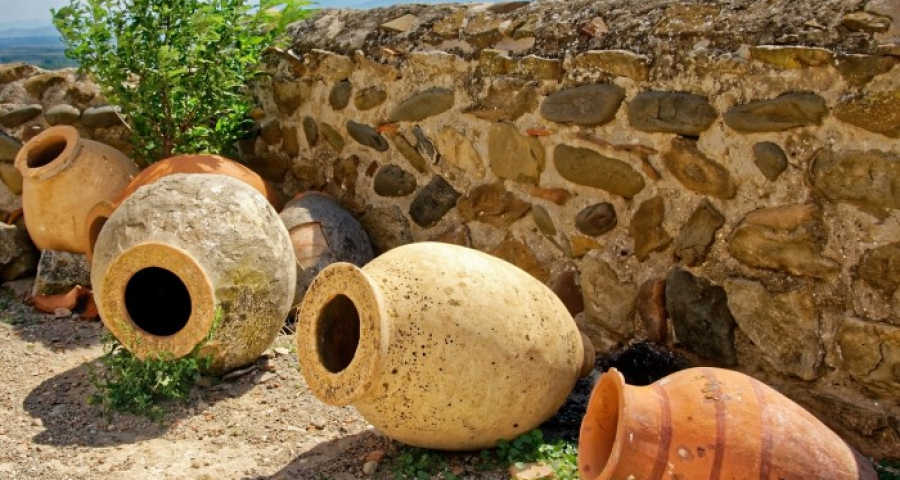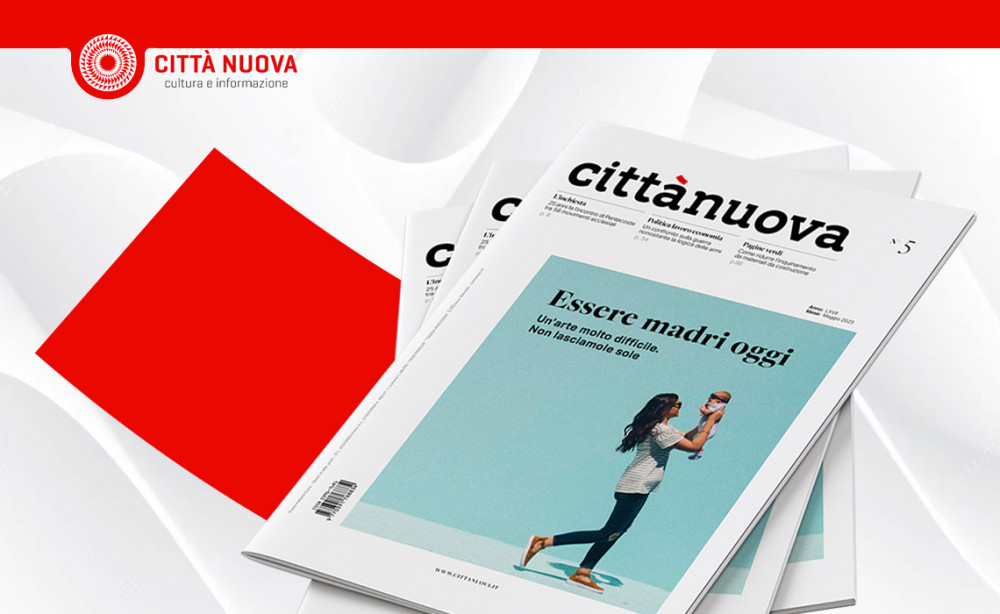Rebirth can be learned /3 - What does the Gospel metaphor of the new wine tell us today? In new times it is necessary to have the courage to intone the funeral song, to give thanks for the past and then to have more faith in the present and the future: to believe more in the children of today than in the fathers of yesterday. Courage is needed to change almost everything so as not to lose everything.
by Luigino Bruni
published in Città Nuova on 12/03/2024 - From the Città Nuova magazine n. 11/2023
Communities struggle to understand when one world has ended and a new one has begun. There are many reasons for this collective fatigue, and they are generally little studied, especially in the context of communities of a religious and spiritual nature, where the various levels of problems (economic, organisational, charismatic...) are intertwined and mixed up.
A well-known passage from the Gospel of Luke can inspire us on some of the risks and errors: in fact, the Bible is also a valuable map for finding one's way through the high and impervious passages. Here it is: ‘He told them this parable: “No one tears a piece out of a new garment to patch an old one. Otherwise, they will have torn the new garment, and the patch from the new will not match the old. And no one pours new wine into old wineskins. Otherwise, the new wine will burst the skins; the wine will run out and the wineskins will be ruined. No, new wine must be poured into new wineskins.”’ (Luke 5:36-38).
The wineskins and the wine in them are excellent parables for understanding the collective realities born of a charisma. These live of a spirit that generated them, which we can call ‘charisma’, and also of structures, practices, organisations, norms, statutes born to preserve, guard and care for the charisma itself: the wineskins. In the context of the Gospel, the wineskins were the Mosaic Law and its institutions, while the wine was the spirit, the coming of the Kingdom of Heaven. Something had happened, the vineyard of YHWH had produced a new wine, and yesterday's wineskins had to be changed. The wineskins were not wrong or bad: they were simply unfit to contain a new wine, and if the containers were not changed soon, the contents would also be lost.
The metaphor of the new wine can mean many different things today.
When a charisma arrives on earth, it is a brand new wine, the fruit of a vine never seen before, albeit the fruit of grafting vines from the same great vineyard of the Church and humanity. At the beginning everyone understands that this new wine needs new wineskins: and so the community creates institutions, statutes, norms and new languages that are capable of containing and preserving that novelty. In the 13th century no Franciscan monk thought of living the spirit of Francis by remaining in the beautiful Benedictine abbeys: something new was born, the convents appeared and a new rule was written to contain that novelty. Likewise, to write the Italian Constitution after Fascism no one thought of re-adapting the Statuto Albertino (the constitution granted by King Charles Albert of Sardinia to the Kingdom of Sardinia on 4 March 1848 which later became the constitution of the unified Kingdom of Italy and remained in force, with changes, until 1948 - the tr.).
It is a much more difficult case to understand when it happens in the history of a community that the wineskins need to be renewed because there is a new wine. It is difficult to understand because the vine is now there, and many think that the wineskins will last forever, that there will be no new wine any more. The death of the founder is usually one of these moments, when the wine becomes new again and the wineskins grow old.
The decisive problem arises from the fact that the wineskins that need to be changed are those made by the founder. And so the structures, practices, rules, words, statutes and constitutions have become very important and cherished over the years. They are now inheritance, they are patrimony (i.e. patres-munus: gift of the fathers), they are a beautiful part of the furnishings and richness of the community house, to the point of loving the wineskins almost more than the wine. But if you grow fond of yesterday's wineskins, communities grow old along with their barrels, because they believe more in the containers than in the wine, and soon they will witness, inert, the decomposition of the wineskins and the wine.
There is another detail at the end of Luke's parable: ‘And no one after drinking old wine wants the new, for they say, “The old is better.”’ (5:39). Many liked the old wine better, and do not want the new: and the problems start growing. Others, furthermore, sought compromises and tried to combine the old and the new by putting a patch of new cloth over an old garment. No: in new times it is necessary to have the courage to intone the funeral song, to give thanks for the past and then to have more faith in the present and the future: to believe more in the children of today than in the fathers of yesterday.
There is a day when the wineskins that have contained the spirit of the charisma for “a thousand years” suddenly become obsolete, because a watch duty in the night lasted longer than a thousand years. The vine of the charisma has not changed, only the new wine of a new vintage has arrived, in the same vineyard and vines as yesterday. And here one needs the courage to change almost everything in order not to lose everything.








